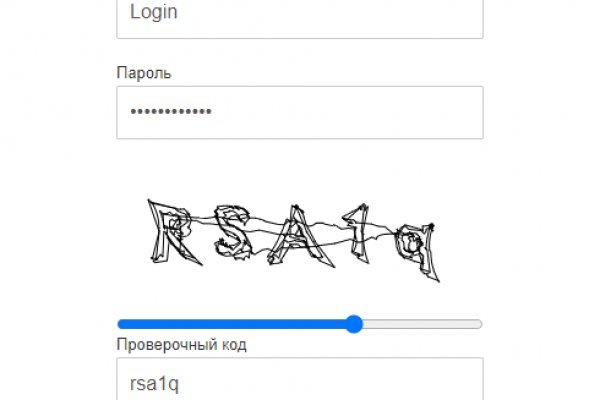Кракен онлайн

Сервисы Кракен Биржа концентрируется на предоставлении трейдерам максимального торгового функционала. Onion Darkmoney, финансовый форум darkmonn6oy55o7kgmwr4jny2gi2zj6hyalzcjgl444dvpalannl5jid. Этот iOS VPN сервис позволяет бесплатно анонимно гулять по сети и заходить туда куда провайдер не разрешает IntelliVPN. О том, как зайти в kraken даркнет я уже рассказывал в этом материале. Проводите сделки без страха потери денег! Onion имейл. Ниже приводим список некоторых ресурсов: Возможно вам даркнет будет интересно: Как очистить автозагрузку not Evil поисковик по сети Tor Grams аналог Google в даркнете. Оговоримся сразу, что через обычный портал зайти на сайт не получится, поэтому, чтобы обойти запреты, нужно выполнить такую процедуру: Ищем ссылку на kraken darknet для Тор. Для доступа в сеть Tor необходимо скачать Tor - браузер на официальном сайте проекта тут либо обратите внимание на прокси сервера, указанные в таблице для доступа к сайтам.onion без Tor - браузера. Программное обеспечение. На новостном сайте BBC есть специальный сайт. Наберусь опыта, научусь - и обязательно уйду. Onion - SkriitnoChan Просто борда в торе. Tor, запущенный поверх VPN, подразумевает, что сервис-анонимайзер будет видеть, что вы пользуетесь Tor. Спасибо за ваш отзыв. Пишите LegalRC Finance. Onion - XmppSpam автоматизированная система по спаму в jabber. В этом случае, для проведения торговли без комиссий достаточно объемов по сделкам в размере и более. Она узнает адрес предыдущего узла и следующего, после чего отправляет данные ему. Заранее спасибо! Литература. Нам казалось, что мы делаем самый лучший децентрализованный маркетплейс на свете, а теперь мы в этом просто уверены. Ml,.onion зеркало xmpp-сервиса, требует OTR. Для того чтобы зайти в Даркнет, от пользователя требуется только две вещи: наличие установленного на компьютере или ноутбуке анонимного интернет-обозревателя. Здесь доступны все популярные на крипторынке методы трейдинга. Нейтральный отзыв о Kraken Еще пользователи жалуются на нередкие сбои в системе работы Кракен.
Кракен онлайн - Сайт онион kraken
Некоторые из них используют один и тот же имейл для нелегальных операций и покупок в обычных интернет-магазинах - так, известный банковскими взломами хакер aqua приобрел детскую коляску на имя москвича Максима Якубца, выдачи которого теперь требует ФБР pdf. Зайти на гидру через тор можно благодаря использованию онион магазина Гидры hydraruylfkajqadbsyiyh73owrwanz5ruk4x3iztt6b635otne5r4id. Onion/ (Скупка инфы) http chronic6exlcfg4g.onion (Создание документов.п.) http fszbfifepmghk7tz. «Поэтому можно исходить из предположения, что данные уже утекли, и периодически проверять свои аккаунты в общедоступных базах утечек предлагает. На этом пути есть и дополнительные препятствия: новых участников закрытых сообществ зачастую должны порекомендовать так называемые "проверенные" пользователи или лица с особым привилегированным статусом. . Единственное зеркало площадки для покупки товара безопасно и анонимна. Onion/ (Фриланс биржа в ТОР) http weasylartw55noh2.onion/ (Галерея фурри-артов) http 5wddm7cim4qfrj3n.onion/ (Молодежное движение зацепинга) http 24boths2mh6sxaz5.onion/ (аренда ботоа.п.) http dosug4rea4kvnk5f.onion (Услуги древнейшей проффесии) http dreadditevelidot. В канун Нового года сына петербурженки Лады Уваровой пригласили гидра упала на его первую работу. Безопасная и актуальная ссылка на гидру сегодня. Рублей за штуку. Устанавливайте приложение исключительно с зайти на гидру через браузер официального сайта. Кракен был командиром на космической станции Ринго-Винды, где находился в подчинении у адмирала Тренча. Всегда только оригинальная ссылка на сайт гидра. Мы уверены, что у вас все получится! Чем больше людей используют ваш код, тем больше вы можете получить. Как зайти на гидру через тор браузер. К примеру цена Биткоин сейчас 40000, вы купили.00000204 BTC. Уровень 1 (Tier 1) можно вводить/выводить цифровые валюты. Но вместо фотосессии девушку накачали кетамином, гидра снюс засунули в чемодан и повезли в деревню неподалёку от Турина. 2023. Он предоставляет пользователям возможность быстро и безопасно обменивать. Тут мне уже дурно стало. XCom-Enemy-Unknown Кошмарим инопришельцев 4 часть ( захват дрэдноута) кракен. Операция против "Гидры" была совместной инициативой министерства юстиции США, Федерального бюро расследований, Управления по борьбе с наркотиками, налогового управления США по уголовным расследованиям и службы расследований национальной безопасности. Ссылка на кракен вход маркет. Материал по теме Откуда в даркнете берутся базы данных.

На антигенные свойства вируса она влияет не так сильно, но усиливает связывание вируса с клетками и таким образом может усиливать заразность. По нагрузке больниц и по уровням вируса в сточных водах пока предполагают, что волна «Кракена» будет второй по силе за период владычества «Омикрона». Обычно трансляцию можно посмотреть бесплатно, без регистрации и подписки. Будем признательны, если вы пригласите своих друзей или свою гильдию на наш сервер. Как и при других вариантах коронавируса, все это время человек, не имея никаких симптомов, заражает окружающих. Но ломота в суставах и острая пульсирующая боль в мышцах при «Кракене» встречается чаще. «Наступающая волна выше всех тех недавних волн, которые Америка испытала весной, летом и осенью рассказывает известный американский ученый-генетик Дмитрий Прус. Сегодня он устроил там мощную волну, вызвав быстрый рост госпитализаций. «XBB.1.5 отличается от «сингапурского» (сегодня широко распространенного в РФ) XBB.1 одной-единственной, но критической мутацией. По данным американских центров по контролю за заболеваниями (CDC к концу года практически половина всех заражений в стране приходилась на этот субвариант, хотя двумя неделями раньше его доля не превышала. Все о Боевых Искусствах и Спорте Смотреть онлайн Чикаго Блэкхоукс Сиэтл Кракен. Свободные вакансии модераторов и гейм волонтеров! Мутация F486P сочетает в себе уклонение от защитных антител с высокой способностью проникновения в клетки человека. Он уже наделал шума в США, вызвав там самый высокий рост госпитализаций среди пожилых пациентов после первого «Омикрона». По данным эпидемиологов, он с легкостью преодолевает иммунитет после заражений любыми предыдущими штаммами, а также после вакцин. Новый сервер Кракен Онлайн 2 декабря! 12 января Роспотребнадзор сообщил о выявлении в России нового варианта sars-CoV-2, который является одной из разновидностей «Омикрона». И все же он обладает стремительным уровнем заразности, поэтому косит всех подряд, включая тех, кто буквально вот только переболел другими разновидностями «короны». Если вы лидер гильдии, напишите мне в личные сообщения в дискорде @Kraken#9369 и мы сможем создать локальный чат для обсуждения важных моментов и решений. Латинские буквы для обозначения новых мутаций коронавируса кончились, поэтому негласно их стали нарекать в честь мифических животных. С начала 2023 года XBB.1.5 обнаружен уже в 29 странах Европы (во Франции, Дании, Нидерландах, Германии. Кроме того, о приходе «Кракена» пару недель назад отчитался Израиль сегодня этот вариант становится там доминирующим. Роспотребнадзор сообщил о выявлении «Кракена» в Пензенской области, но, возможно, это и не завезенный случай, а пример конвергентной эволюции, когда и в Америке, и в России XBB.1 природным путем приобрел ту же дополнительную мутацию. На сайте предоставляется видеоплеер или ссылка на прямую онлайн-трансляцию. Что это значит? Уже были «Кентавр «Грифон «Рыбы а теперь на арену вышел «Кракен». Как ни странно, специфика РФ может пойти ей на пользу. В группе риска пожилые, хронические больные, дети, беременные. Подвариант «Омикрона» XBB.1.5 это гибрид вариантов.2 и XBB. Дело в том, что в России необычно высокий уровень предкового штамма XBB.1, и это может означать, что групповой иммунитет в РФ более подготовлен к «Кракену». Прямой эфир Опубликовано в 20:51 автором Александр Прямая трансляция Чикаго Блэкхоукс Сиэтл Кракен. А вообще, его «родина» США, где его обнаружили в первых числах декабря прошлого года. Симптомы при этом субварианте мало отличаются от симптомов других сезонных орви (температура выше 38С, насморк, боль в горле, мышцах и суставах, кашель, слабость, головная боль). Кроме того, в игре можно получить любой предмет и экипировку игровым путем, без дополнительных вложений. И все же его распространение в период сезонного всплеска орви чревато тем, что заразиться им можно одновременно с гриппом, при этом значительно повышается вероятность тяжелого течения и серьезных осложнений, а также обострения хронических заболеваний. Роспотребнадзор сообщает, что новоявленный отпрыск «Омикрона» XBB.1.5 Кракен впервые выявлен в России в Пензенской области. Еще точнее, он прямой потомок XBB.1 Гиппогрифа который сам является потомком XBB Грифона. Поскольку «Кракен» мастерски научился уклоняться от иммунной системы, организм не узнает его и пускает в клетки. До того, повторюсь, такая ситуация существовала только в Сингапуре, но высокий уровень вакцинации и сильная система здравоохранения позволили этому городу-государству выйти сухим из воды». Игра проходит в рамках Чемпионата Национальной Хоккейной Лиги (NHL) 2022/2023. Мы полностью пересмотрели концепцию нашего проекта и взяли за основу пожелания игроков и наш опыт за более чем 3 года разработки серверов. Так что будем следить не только за «Кракеном но и за возникающими «кракенятами говорит Дмитрий Прус. Максимально упрощено развитие персонажа в игре и созданы условия для интересных и массовых сражений. Трансляции НХЛ. Сейчас он начал шествие по всему миру, отметившись уже в 29 странах. в Африке, Новой Зеландии, Канаде, а теперь и в России. НХЛ. По опыту других стран, заболеваемость на «Кракене» удваивается каждые 9 дней, а значит, инкубационный период составляет примерно 79 дней. Большинство мутаций, позволяющих ему уклоняться от иммунитета, опасны для прочности клеток, поэтому стоит ожидать, что в XBB.1.5 будут накапливаться дополнительные мутации. На разных странах это может отразиться по-разному из-за различий в их иммунной истории и подготовленности здравоохранения.